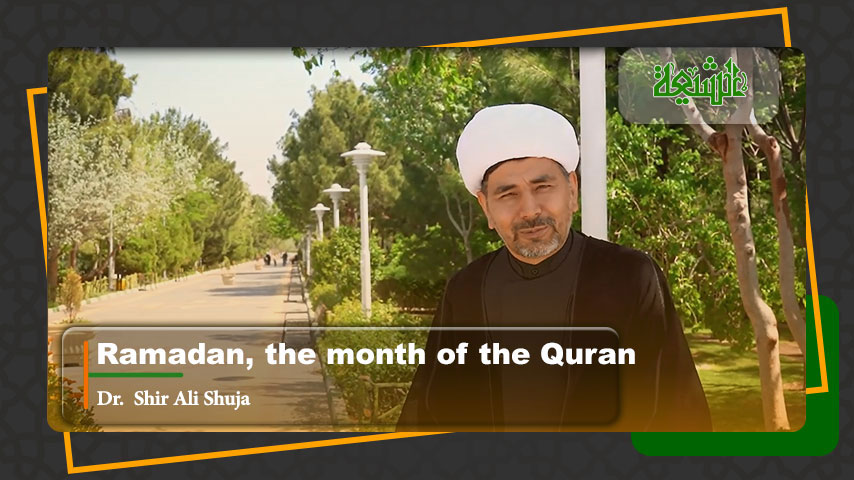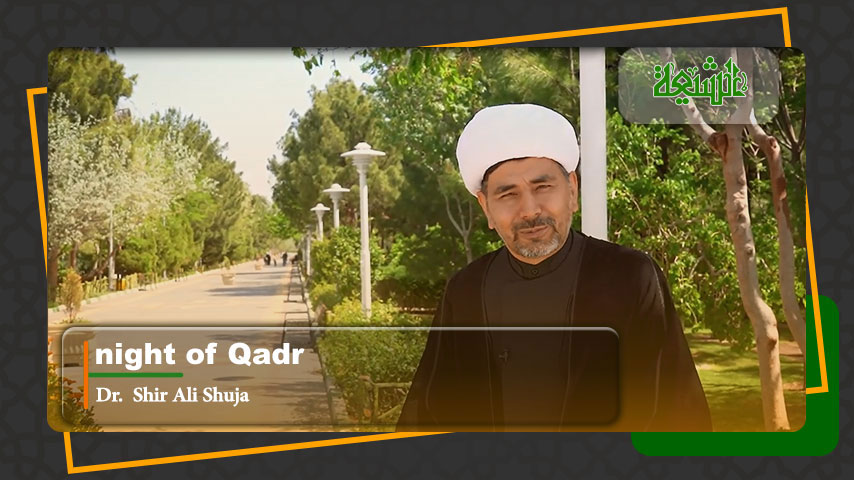Ayatollah Muhammad Ali Qazi Tabatabai, known as the “First Martyr of Mihrab,” stands as a significant figure in the religious and political history of Iran. A scholar, leader, and activist, he dedicated his life to both the scholarly study of Islam and to guiding his community through turbulent political times. His profound knowledge of Islamic teachings and his commitment to social justice positioned him as a leading voice during Iran’s Islamic Revolution. However, it was his unyielding courage, spiritual devotion, and moral integrity that earned him widespread respect among scholars and followers alike. His tragic assassination marked him as a martyr and a symbol of resistance, leaving an enduring legacy that continues to inspire contemporary scholars and activists within Iran and beyond. This paper explores Ayatollah Qazi Tabatabai’s life, his contributions to religious thought, and the lasting impact of his martyrdom on Iranian society.
His Birth and Family Background
Ayatollah Muhammad Ali Qazi Tabatabai was born into a respected religious family in Tabriz, Iran, in 1913. His father, Sayyid Baqir, known as Mirza Baqir, and his uncle, Mirza Asad Allah, were scholars in Tabriz. His father, a respected figure in the local community, instilled in him a commitment to justice and moral responsibility, which would later become central to his worldview and his actions as a leader.
His upbringing in a scholarly environment fostered an early connection to Islamic teachings and the Quran. Growing up in the vibrant intellectual climate of Tabriz, known for its prominent role in the religious and cultural landscape of Iran, he was surrounded by influential religious figures and scholars. This environment encouraged his pursuit of religious education, and from a young age, he showed a strong aptitude for Islamic studies.
His Education
Ayatollah Qazi Tabatabai attended the local seminary in Tabriz, where he delved deeper into classical Islamic disciplines, including Quranic interpretation, Hadith, and Islamic jurisprudence (fiqh). His dedication to his studies quickly became apparent, and his teachers recognized his intellectual potential and deep commitment to the faith.
Ayatollah Qazi Tabatabai’s intellectual and spiritual journey was greatly shaped by prominent scholars and mentors within the Shia seminary (Hawza) system, particularly during his time in Qom and Najaf. He lived in Qom since 1940 for 10 years. Then he went to Najaf and participated in the classes of prominent scholars there and some of them gave him permission to narrate hadith, some of whom are Aqa Buzurg Tihrani, al-Sayyid ‘Abd al-Husayn Sharaf al-Din al-‘Amili, Abu l-Qasim al-Khoei and other teachers such as Sayyid Shahab al-Din Mar’ashi Najafi, Sayyid Muhammad Hujjat, Sayyid Sadr al-Din Sadr, Sayyid Muhammad Rida Gulpaygani, Sayyid Husayn Burujirdi, ‘Abd al-Husayn Rashti, Sayyid Hasan Bujnurdi, Al-Sayyid Muhsin al-Hakim, Muhammad Husayn Kashif al-Ghita’.
The mentorship and teachings of these scholars guided him in forming his views on political engagement, resistance against injustice, and the necessity of active religious leadership in public life. This foundation not only enhanced his scholarship but also prepared him for the influential role he would later play as an advocate for Iran’s Islamic movement.
His Religious Contributions
Ayatollah Muhammad Ali Qazi Tabatabai was a scholar of profound insight, who dedicated his life to deepening Islamic understanding through both study and teaching. His contributions are notable in the fields of Quranic exegesis, theology, and jurisprudence, where he sought to convey the depth of Islamic teachings in a way that resonated with both scholars and laypeople. In addition to his academic work, Ayatollah Qazi Tabatabai was known for his lectures and sermons, which often addressed pressing social and moral issues from an Islamic perspective.
His Social and Political Activism
Ayatollah Muhammad Ali Qazi Tabatabai was a pivotal figure in Iran’s Islamic Revolution, advocating for the establishment of an Islamic government that would align with Quranic values and serve the people. His role was defined by both his scholarly authority and his unwavering commitment to political justice, which made him a leading voice among clerics pushing for reform. His involvement began in the early stages of resistance against the Pahlavi regime’s secularization efforts and foreign alliances, particularly with Western powers. He saw these policies as direct threats to the spiritual and cultural foundations of Iran, propelling him to become an active participant in the movement for an Islamic state.
Throughout the revolution, Qazi Tabatabai used his platform to inspire the masses, delivering powerful sermons that critiqued the Shah’s authoritarian rule and encouraged the Iranian people to resist oppression. He considered the Islamic Revolution as a divinely guided movement, destined to restore Iran’s sovereignty and moral integrity. His collaboration with Ayatollah Khomeini and other leading revolutionaries reinforced his commitment to establishing a governance model rooted in Islamic principles, where justice, morality, and community welfare were prioritized.
His Spiritual Personality and Ethical Conduct
Ayatollah Muhammad Ali Qazi Tabatabai was revered not only for his intellectual contributions but also for his deep spirituality and unwavering commitment to personal piety. His daily life was marked by simplicity and humility, reflecting his belief in the importance of embodying Islamic virtues in every aspect of life. He was known to begin each day with extended prayers and Quranic recitation, dedicating his mornings to spiritual reflection before attending to his scholarly and community responsibilities. His dedication to prayer, often prolonged and performed with intense devotion, left a lasting impression on those who observed him.
Ayatollah Qazi Tabatabai’s ethical conduct was evident in his interactions with others, as he treated everyone, from fellow scholars to laypeople, with respect, compassion, and understanding. He avoided excessive material comforts and lived a modest life, preferring simplicity in both his attire and lifestyle. This personal commitment to humility reinforced his reputation as a genuine and pious figure, whose actions reflected his teachings.
Ayatollah Qazi Tabatabai’s sermons often emphasized the importance of moral conduct and the need to cultivate inner piety, which he saw as essential to true faith. This message resonated deeply with his followers, who saw in him a leader whose spirituality was both accessible and inspiring.
His spiritual character also played a critical role in his political influence. Ayatollah Qazi Tabatabai’s ethical integrity made him a trusted figure among the revolutionary leadership and the wider public, as people believed that his motives were pure and aligned with a higher purpose.
His Role as a Religious Leader (Imam of Mihrab)
As the Imam of Mihrab, Ayatollah Muhammad Ali Qazi Tabatabai held a highly respected and influential position within the mosque, guiding his community in both spiritual and social matters. This role placed him at the heart of community life, where he led prayers, delivered sermons, and provided religious instruction. His responsibilities extended beyond leading daily and weekly congregational prayers; he served as a spiritual counselor, mediator, and advisor to those in need. As an Imam, he was responsible for conveying the principles of Islam and fostering a deeper understanding of the faith within his community. He was known to emphasize the importance of moral discipline, spiritual awareness, and the pursuit of justice, often using his position to address societal issues and advocate for the welfare of his congregation. His role as an Imam was central to his identity and his mission, as he viewed the Mihrab as a place of guidance, healing, and social engagement.
His Martyrdom
Islamic movement and a close ally of Ayatollah Khomeini, Qazi Tabatabai was viewed by the Pahlavi regime and other adversaries as a significant threat to their power. His position as Imam of Mihrab, where he regularly delivered sermons that critiqued the injustices of the regime, put him at the forefront of the struggle against oppression and earned him the love and loyalty of his community.
His courage in standing firm for his beliefs ultimately led to his assassination, making him the first Imam of Mihrab to be martyred in the course of Iran’s Islamic movement. Ayatollah Muhammad Ali Qazi Tabatabai was attacked and martyred by a member of the Furqan Group on a street when he was returning home after holding evening and ‘Isha prayers on Dhu al-Hijjah 10, 1399/November 1, 1979. His martyrdom symbolized the sacrifices required in the pursuit of an Islamic government rooted in moral principles, marking him as a powerful symbol of devotion to the cause.
Ayatollah Khomeini and other prominent figures within the Islamic Revolution paid tribute to Qazi Tabatabai, acknowledging his pivotal role in advancing the movement. His martyrdom thereafter became a rallying point, strengthening the resolve of those fighting for the values he had preached.
His Legacy
Ayatollah Qazi Tabatabai’s legacy continues to resonate deeply within Iranian religious and political thought. His life, teachings, and martyrdom are seen as embodiments of the principles of self-sacrifice, resistance against oppression, and commitment to a just Islamic society. His role as a scholar, Imam, and martyr has been immortalized in Iranian culture, where he is remembered as a symbol of the sacrifices that led to the establishment of the Islamic Republic.
Through his role as Imam of Mihrab, Ayatollah Qazi Tabatabai left an indelible impact on his community, guiding them not only in worship but also in building a cohesive, compassionate, and just society. His leadership in the mosque set a standard for how faith, education, and social responsibility could be intertwined to create a lasting legacy of spiritual and social progress.
In the years following his martyrdom, Qazi Tabatabai’s teachings on justice, governance, and spiritual piety have influenced Iranian religious discourse. His ideas on the role of religious leaders in guiding society remain central to Iran’s religious and political landscape, inspiring future generations to see leadership as a moral and spiritual responsibility. His martyrdom is commemorated annually, reminding Iranians of the cost of freedom and the duty to uphold the ideals for which he stood.
Conclusion
Ayatollah Muhammad Ali Qazi Tabatabai’s life as a scholar, Imam, and revolutionary leader left an indelible mark on Iran’s religious and social landscape. His unwavering commitment to justice, deep spiritual dedication, and influential role in the Islamic Revolution positioned him as a guiding force for his community and a symbol of resistance against oppression. His martyrdom as the “First Martyr of Mihrab” reinforced the ideals he championed, inspiring generations to continue the pursuit of a society grounded in Islamic principles of justice and compassion. His legacy endures, exemplifying the profound impact of faith-driven leadership and sacrifice in shaping Iran’s religious and political thought.
















